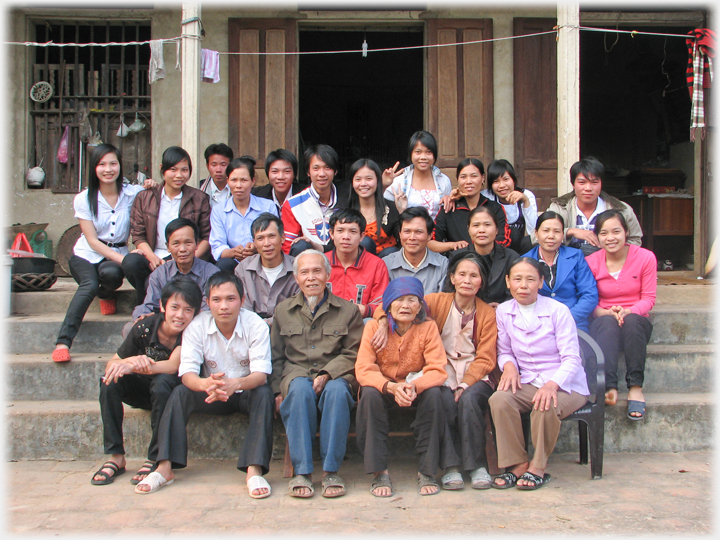
Surplus-labour
Those who labour ... in reality feed both the pensioners ... [called the rich] and themselves.
(The Marx/Engles quoting of) Edmund Burke (1795)

Wherever a part of society possesses the monopoly of the means of production, the labourer, free or not free, must add to the working-time necessary for his own maintenance an extra working-time in order to produce the means of subsistence for the owners of the means of production whether this proprietor be the Athenian ...Etruscan ...Roman ...Norman baron, American slave-owner ... modern landlord or capitalist.
Karl Marx (1887)

Extended families, like the one shown above, throughout prehistory down to modern times have supported their less able members. Such community
mutual aid
 A particular view on the way so many creatures assist one another.
can be seen in villages around the world; effectively people commonly work more than is necessary for their own needs, that extra amount, the ‘surplus’, is diverted to help other members of the group. Marx’s interest is in what happens to that individual ‘surplus-labour’ when people are no longer part of a traditional group. Above Marx identifies examples of ‘parts of society’ which use their ‘monopoly’ to extract that surplus for their own ends. No doubt there are munificent ‘parts of society’ everywhere which disperse such surplus traditionally, but it is equally clear, from today’s distribution of wealth, that much of that surplus accretes to those whose needs are no greater than the producers of the surplus. Surplus-labour, transmuted into vast wealth, is indirectly
purloined
A particular view on the way so many creatures assist one another.
can be seen in villages around the world; effectively people commonly work more than is necessary for their own needs, that extra amount, the ‘surplus’, is diverted to help other members of the group. Marx’s interest is in what happens to that individual ‘surplus-labour’ when people are no longer part of a traditional group. Above Marx identifies examples of ‘parts of society’ which use their ‘monopoly’ to extract that surplus for their own ends. No doubt there are munificent ‘parts of society’ everywhere which disperse such surplus traditionally, but it is equally clear, from today’s distribution of wealth, that much of that surplus accretes to those whose needs are no greater than the producers of the surplus. Surplus-labour, transmuted into vast wealth, is indirectly
purloined
 The source of many present woes: and the accumulation of wealth.
by those who then claim it as absolutely their own; a magic and infectious switch which seems to be caught by the
powerful
The source of many present woes: and the accumulation of wealth.
by those who then claim it as absolutely their own; a magic and infectious switch which seems to be caught by the
powerful

On the central place of power in the human psyche.
everywhere.
Both quotes are from page 226 of the Lawrence and Wishart edition of Capital published by them in 1970. The first quote is from footnote 1 which shows Burke’s words as above. In fact in his Thoughts and details on Scarcity, which was a memorandum presented to William Pitt the Younger in 1795, Burke had written: “In a fair distribution among a vast multitude none can have much. That class of dependent pensioners called the rich is so extremely small, that if all their throats were cut, and a distribution made of all they consume in a year, it would not give a bit of bread and cheese for one night’s supper to those who labour.” Amazing how this situation has changed - or more probably his claim was false in the first place. Today if the wealth of the world’s 127 million, or so, millionaires could be cashed out and redistributed amongst the total world population it would give each person over $25,000 in the year, a not inconsiderable amount of bread and cheese.
Above an extended family at Tết - the Vietnamese New Year - when families congregate.
Above, hovering on blue introduces a link: click to go, move away to stay.

Saturday 26th October 2024
 ...guide to this site
...guide to this site